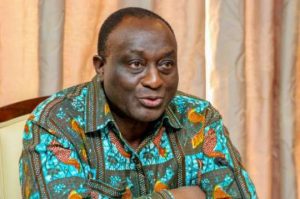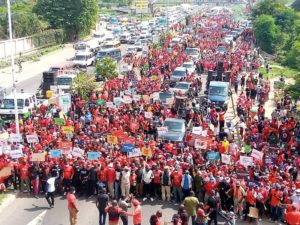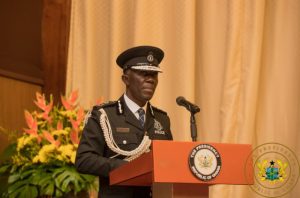The Special Prosecutor-nominee, Kissi Agyebeng, says he is committed to dealing with unexplained wealth accrued by government officials if he’s confirmed.
Appearing before Parliament’s Appointments Committee, Mr. Agyebeng said he expects all the wealth of government officials to come from lawful sources.
“I will be looking out in respect of the sources of that income… whatever the source of the income is; should be lawful,” he said.
Asked if Ghana should criminalize unexplained wealth by the Minority Leader, Haruna Iddrissu, he surmised that it would depend on the defence of the person in question.
“If we are to place unexplained wealth in proper context, I will say that if the person cannot reasonably explain as matched against his lawful income the amount of money in question, then that aspect, in my opinion, should be criminalized. But if you can reasonably explain how you came by that amount of money, then that should be acceptable.
“If I were to place the burden on you; matched against your lawful income, and you cannot reasonably explain the shortfall as to how your lawful income falls short of your wealth, then I will be asking you questions and calling you in.”
As a general strategy for fighting corruption, Mr. Agyebeng said he would make graft a high-risk endeavour.
“I am going to make corruption very costly to engage in terms of conflict of interest,” he stated.
“My conscience and my learning of the law are going to be my guide,” the nominee also assured.
Attorney-General and Minister for Justice, Godfred Yeboah Dame, nominated Mr. Agyebeng, a law lecturer and private legal practitioner, as a replacement for Martin Amidu, who resigned from the position in November 2020 under very controversial circumstances.
Kissi Agyebeng was called to the Ghana Bar in October 2003 and holds a Bachelor of Laws (LLB) degree from the University of Ghana, as well as, Master of Laws (LLM) degrees from Schulich School of Law, Dalhousie University, Canada, and Cornell Law School, USA.
He has, since 2006, been teaching Criminal Law at the University of Ghana, whilst engaging in private law practice.
The Office of the Special Prosecutor has the mandate to investigate and prosecute all suspected corruption and corruption-related offenses as pertaining to public officers, politically exposed persons, and persons in the private sector alleged to have been involved in any corruption and corruption-related offenses.
Apart from initiating investigations on its own, Act 959 gives the Office of the Special Prosecutor the power to receive and investigate complaints of alleged corruption from the public or investigate suspected corruption or corruption-related offenses upon referral from public bodies such as the Attorney General’s Department, the Commission on Human Rights and Administrative Justice (CHRAJ) and the Economic and Organized Crime Office (EOCO).






